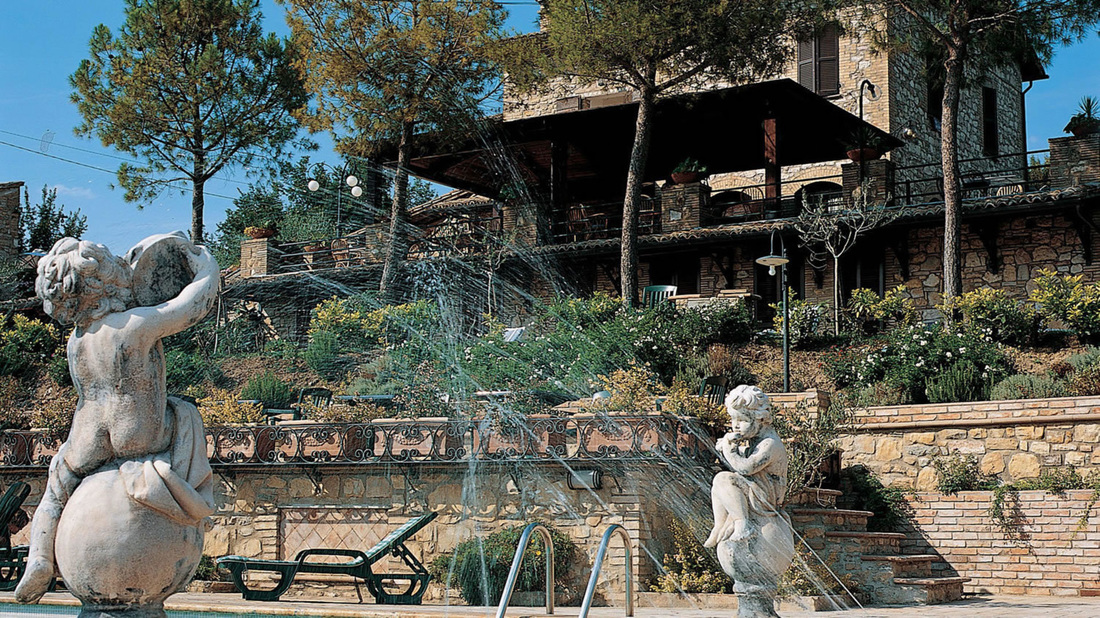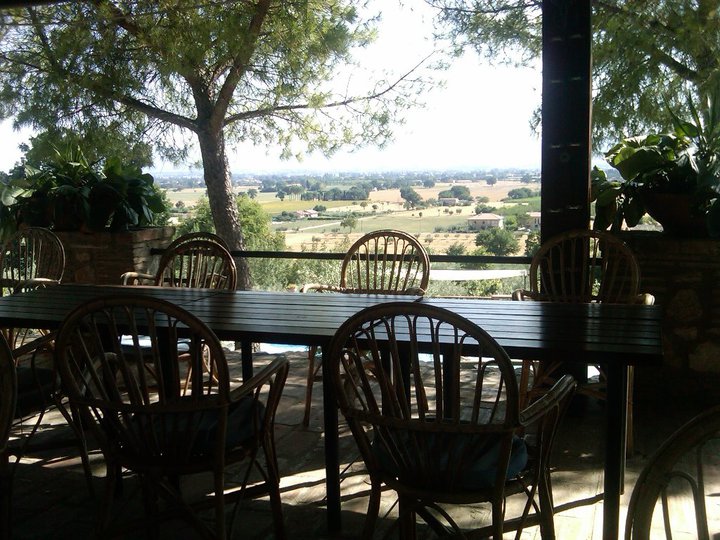The Time of the Forgotten
A Life Needing to Be Lived
Living in Relationship to the Self
July 9th - 16th, 2019
The Country House - Tre Esse
Assisi, Italy
I am filled with gratitude for all the participants and faculty whose love for this work on psyche, matter and soul opened our hearts and minds to unimaginable vistas during these past 30 years. While many of these pioneers are no longer with us, their legacy lives on in our work and in the generosity of spirit that fills the Assisi community.
This year’s conference theme, The Time of the Forgotten and The Life Needing to be Lived, is ever-present in the fields of literature, psychology, spirituality and the new sciences. In Elie Wiesel’s novel, The Forgotten, where, because of a father’s “diseased memory, his son is asked to remember for him. Throughout his life and work Elie Wiesel speaks of this need to remember because to forget, he reminds us, creates conditions for the re-occurrence of events we pray will never happen again.
In the biological domain, Sheldrake’s work on the “Presence of the Past” speaks to the role of memory (archetypal) in the formation of biological form. So too, in virtually every spiritual practice, there is a reverence for the past. From Christianity’s “anamnesis,” Judaism’s, “The Day of Remembrance,” and Eastern religion’s, “Akashic field,” we find a spiritual imperative to remember.
In psychology, Freud stressed the need to make conscious our "forgotten memories," otherwise we tend to "repeat what we do not remember," while for Jung, it was the reality of an inherited, archetypal memory and the presence of an “antique Soul” that is central to his work. All of these traditions pay homage to the living presence of Mnemosyne and Lethe, the deities of Memory and Forgetfulness.
Memory is not so much about events as it is about Eros. It reminds us of our relationships to Self and others. So too, this memory of the past shapes present, and future life. Dr. Yoram Kaufmann believed that those most enduring childhood memories reveal the mythic, archetypal nature that will unfold, and become our future.
Our inability to find a place for those troubling memories keeps us shackled to a constrained, Sisyphean world whereby our movement into the future is thwarted by these "forgotten" memories which keep pushing us back down the hill. While retrieving these memories is a psychological issue, learning to live with what we remember, is a spiritual process.
Memory remains inexorably related to our future. Dr Edward Whitmont makes this point when writing that:
“Relevant events in a patients past history, which we have been …viewing as causes of current psychopathology may now perhaps be seen as manifestations of the beginning life pattern…as essential landmarks in the actualization of a pattern of wholeness….which engenders present and future psychological advance.”
The past is not a static reality, but one grounded within an archetypal, timeless world, carrying much of what will unfold and inform future life. Perhaps, if we listen carefully, we can hear the murmurs of a future taking shape within the psyche. While a future predicated solely on the past is regressive, a life conscious of the past, allows for the emergence of transformative experiences. Each time I prepare a meal, I enter the living reality of what is on one hand, the past, yet at the same time exists as an ongoing, living reality in the present and future. In my own childhood, 30-40 of us would gather for Sunday dinners, eating, and listening to the melodic rhythms of an ancient language spoken only in the homes and villages of Southern Italians. This intermingling of past, present, and future enriches our life by connecting us to a vital and living experience of this “antique soul.”
In reflecting on the past, we look to the present as an intimation of our future. Rabbi Heschel speaks of “time as sacred”, and how in preparing for the Sabbath, one enters this sacred time, which; “…comes like a caress, wiping away fear, sorrow, and somber memories”. His joy in preparing his heart, soul, and home for the coming of the Shekinah- the Queen, also speaks of a future calling to be lived. Ultimately, we have to agree with the sages and dreamers, who understood that all time is about essence, expressing an eternal, archetypal reality.
With a faculty of leading Jungian analysts, mythologists and authors, we will address this weaving of past, present, and future into this eternal moment, and look at ways to prepare our own psychic home for the arrival of these new creative possibilities. In addition to faculty presentations, there will be special presentations given by our international students and graduates on the role of archetypes and archetypal patterns in their respective countries.
We truly hope that you will join us for this historic event in the village of Assisi, Italy. Here, you may feel the sacredness of time and place and understand why St. Clair and St. Francis knew that Assisi was truly their home, for in this sacred space, the veil separating the material from spiritual reality lifts, allowing us to experience something of the transcendent.
During the conference, we will feast on delicious regional foods and wines, including wines such as Sagrantino di Montefalco and from the vineyards of La Cantina Lungarotti which is just a short drive from Assisi. Perhaps the best known foods of this region are; Pasta con Tartufo (Pasta with truffles) Raviolis, wild game, including cinghiale (wild boar), and the freshest of vegetables and cheeses, and the most delicious Burrata cheese in the world!!!! Lunch and dinners will be taken at our conference site, The Country House-Tree Esse, where we will dine al fresco, on the patio overlooking the splendor of the Umbrian valley.
So please join us for this unique and profound confluence of matter-spirit and soul this summer in Assisi, Italy.
This year’s conference theme, The Time of the Forgotten and The Life Needing to be Lived, is ever-present in the fields of literature, psychology, spirituality and the new sciences. In Elie Wiesel’s novel, The Forgotten, where, because of a father’s “diseased memory, his son is asked to remember for him. Throughout his life and work Elie Wiesel speaks of this need to remember because to forget, he reminds us, creates conditions for the re-occurrence of events we pray will never happen again.
In the biological domain, Sheldrake’s work on the “Presence of the Past” speaks to the role of memory (archetypal) in the formation of biological form. So too, in virtually every spiritual practice, there is a reverence for the past. From Christianity’s “anamnesis,” Judaism’s, “The Day of Remembrance,” and Eastern religion’s, “Akashic field,” we find a spiritual imperative to remember.
In psychology, Freud stressed the need to make conscious our "forgotten memories," otherwise we tend to "repeat what we do not remember," while for Jung, it was the reality of an inherited, archetypal memory and the presence of an “antique Soul” that is central to his work. All of these traditions pay homage to the living presence of Mnemosyne and Lethe, the deities of Memory and Forgetfulness.
Memory is not so much about events as it is about Eros. It reminds us of our relationships to Self and others. So too, this memory of the past shapes present, and future life. Dr. Yoram Kaufmann believed that those most enduring childhood memories reveal the mythic, archetypal nature that will unfold, and become our future.
Our inability to find a place for those troubling memories keeps us shackled to a constrained, Sisyphean world whereby our movement into the future is thwarted by these "forgotten" memories which keep pushing us back down the hill. While retrieving these memories is a psychological issue, learning to live with what we remember, is a spiritual process.
Memory remains inexorably related to our future. Dr Edward Whitmont makes this point when writing that:
“Relevant events in a patients past history, which we have been …viewing as causes of current psychopathology may now perhaps be seen as manifestations of the beginning life pattern…as essential landmarks in the actualization of a pattern of wholeness….which engenders present and future psychological advance.”
The past is not a static reality, but one grounded within an archetypal, timeless world, carrying much of what will unfold and inform future life. Perhaps, if we listen carefully, we can hear the murmurs of a future taking shape within the psyche. While a future predicated solely on the past is regressive, a life conscious of the past, allows for the emergence of transformative experiences. Each time I prepare a meal, I enter the living reality of what is on one hand, the past, yet at the same time exists as an ongoing, living reality in the present and future. In my own childhood, 30-40 of us would gather for Sunday dinners, eating, and listening to the melodic rhythms of an ancient language spoken only in the homes and villages of Southern Italians. This intermingling of past, present, and future enriches our life by connecting us to a vital and living experience of this “antique soul.”
In reflecting on the past, we look to the present as an intimation of our future. Rabbi Heschel speaks of “time as sacred”, and how in preparing for the Sabbath, one enters this sacred time, which; “…comes like a caress, wiping away fear, sorrow, and somber memories”. His joy in preparing his heart, soul, and home for the coming of the Shekinah- the Queen, also speaks of a future calling to be lived. Ultimately, we have to agree with the sages and dreamers, who understood that all time is about essence, expressing an eternal, archetypal reality.
With a faculty of leading Jungian analysts, mythologists and authors, we will address this weaving of past, present, and future into this eternal moment, and look at ways to prepare our own psychic home for the arrival of these new creative possibilities. In addition to faculty presentations, there will be special presentations given by our international students and graduates on the role of archetypes and archetypal patterns in their respective countries.
We truly hope that you will join us for this historic event in the village of Assisi, Italy. Here, you may feel the sacredness of time and place and understand why St. Clair and St. Francis knew that Assisi was truly their home, for in this sacred space, the veil separating the material from spiritual reality lifts, allowing us to experience something of the transcendent.
During the conference, we will feast on delicious regional foods and wines, including wines such as Sagrantino di Montefalco and from the vineyards of La Cantina Lungarotti which is just a short drive from Assisi. Perhaps the best known foods of this region are; Pasta con Tartufo (Pasta with truffles) Raviolis, wild game, including cinghiale (wild boar), and the freshest of vegetables and cheeses, and the most delicious Burrata cheese in the world!!!! Lunch and dinners will be taken at our conference site, The Country House-Tree Esse, where we will dine al fresco, on the patio overlooking the splendor of the Umbrian valley.
So please join us for this unique and profound confluence of matter-spirit and soul this summer in Assisi, Italy.
Meet the Faculty
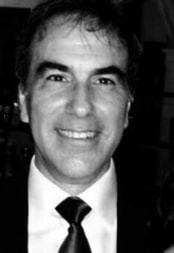
Eduardo Carvallo, M.D.
Eduardo Carvallo is a Venezuelan psychiatrist and senior training analyst, member of the IAAP since 2001. His training as Jungian analyst was deeply influenced by his relationship with Rafel Lopez-Pedraza, one of the co-founders of Archetypal psychology. During the last 15 years, Eduardo has participated in the IAAP Routers Training Program of different Latin America’s countries as supervisor and analyst. For the last 20 years, he has been a speaker on cultural, archetypal and symbolism themes and its aplications in clinics in Latin America, North America and Europe. He also has participated in the training programs of the International Center for the Study of Analytical Patterns and the International Association for Expressive Sandwork.
Eduardo is past –president of the Venezuelan Society of Jungian Analysts and the current vice president of the Colombian Society of Jungian Analysts, and a leader in the field of Jungian Psychology in Latin America. In addition to his work as a Jungian Analyst he is an Archetypal Pattern Analyst and faculty member of the Assisi Institute. He is living with his family in Bogota, Colombia, where he has his clinical practice
Eduardo Carvallo is a Venezuelan psychiatrist and senior training analyst, member of the IAAP since 2001. His training as Jungian analyst was deeply influenced by his relationship with Rafel Lopez-Pedraza, one of the co-founders of Archetypal psychology. During the last 15 years, Eduardo has participated in the IAAP Routers Training Program of different Latin America’s countries as supervisor and analyst. For the last 20 years, he has been a speaker on cultural, archetypal and symbolism themes and its aplications in clinics in Latin America, North America and Europe. He also has participated in the training programs of the International Center for the Study of Analytical Patterns and the International Association for Expressive Sandwork.
Eduardo is past –president of the Venezuelan Society of Jungian Analysts and the current vice president of the Colombian Society of Jungian Analysts, and a leader in the field of Jungian Psychology in Latin America. In addition to his work as a Jungian Analyst he is an Archetypal Pattern Analyst and faculty member of the Assisi Institute. He is living with his family in Bogota, Colombia, where he has his clinical practice
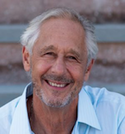
Michael Conforti, Ph.D.
MICHAEL CONFORTI, Ph.D. is a pioneer in the field of matter-psyche studies. Dr. Conforti is actively investigating the workings of archetypal fields and the relationship between Jungian psychology and the New Sciences. He is a Jungian analyst and the Founder and Director of The Assisi Institute. Dr. Conforti is the author of Threshold Experiences: The Archetype of Beginnings (2007) and Field, Form and Fate: Patterns in Mind, Nature and Psyche(2002). His books have been translated into Italian and Russian and a Spanish edition is now in preparation.
MICHAEL CONFORTI, Ph.D. is a pioneer in the field of matter-psyche studies. Dr. Conforti is actively investigating the workings of archetypal fields and the relationship between Jungian psychology and the New Sciences. He is a Jungian analyst and the Founder and Director of The Assisi Institute. Dr. Conforti is the author of Threshold Experiences: The Archetype of Beginnings (2007) and Field, Form and Fate: Patterns in Mind, Nature and Psyche(2002). His books have been translated into Italian and Russian and a Spanish edition is now in preparation.

Arlene Landau, Ph.D.
Arlene Diane Landau, Ph.D., is a Diplomate Senior Jungian Analyst and is a member of the C. G. Jung Institute of Los Angeles, the Inter-Regional Society of Jungian Analysts, and the International Association for Analytical Psychology. Dr. Landau has been a certified Jungian analyst for 25 years. She holds a bachelor’s degree in fine art, master’s degrees in psychology and mythological studies, and a Ph.D. in mythological studies, and has lectured internationally. She is in private practice in Pacific Palisades, California.
Arlene Diane Landau, Ph.D., is a Diplomate Senior Jungian Analyst and is a member of the C. G. Jung Institute of Los Angeles, the Inter-Regional Society of Jungian Analysts, and the International Association for Analytical Psychology. Dr. Landau has been a certified Jungian analyst for 25 years. She holds a bachelor’s degree in fine art, master’s degrees in psychology and mythological studies, and a Ph.D. in mythological studies, and has lectured internationally. She is in private practice in Pacific Palisades, California.
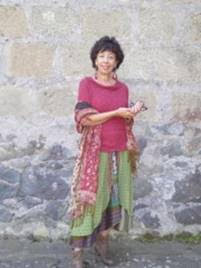
Elena Liotta
Elena Liotta was born in Buenos Aires, Argentina, now living in Orvieto, Italy. She is a clinical psychologist who specialized as a Jungian psychoanalyst and Training Analyst. She also has an international background and university degree in Oriental Studies (Roma, La Sapienza). In addition to her clinical practice she has served as a city councilor in the local government of Orvieto, focusing on Health, Education, Social Services and Youth. She has supervised women’s help organizations and was a Professor of Continuing Education which included gender issues. Elena continues to work as a consultant on refugees, migrants, women soldiers on UN missions, preventing abuse, and she continues to participate in international multicultural projects and encounters. Among her publications are books and numerous articles including: On Soul and Earth. The Psychic Value of Place, Routledge, London New York 2009; Gender and Power, Towards Equality and Democratic Governance (chapter 18) Palgrave Macmillan 2015; A modo mi: Donne tra creatività e potere, Edizioni Magi, Roma 2007.
Elena Liotta was born in Buenos Aires, Argentina, now living in Orvieto, Italy. She is a clinical psychologist who specialized as a Jungian psychoanalyst and Training Analyst. She also has an international background and university degree in Oriental Studies (Roma, La Sapienza). In addition to her clinical practice she has served as a city councilor in the local government of Orvieto, focusing on Health, Education, Social Services and Youth. She has supervised women’s help organizations and was a Professor of Continuing Education which included gender issues. Elena continues to work as a consultant on refugees, migrants, women soldiers on UN missions, preventing abuse, and she continues to participate in international multicultural projects and encounters. Among her publications are books and numerous articles including: On Soul and Earth. The Psychic Value of Place, Routledge, London New York 2009; Gender and Power, Towards Equality and Democratic Governance (chapter 18) Palgrave Macmillan 2015; A modo mi: Donne tra creatività e potere, Edizioni Magi, Roma 2007.
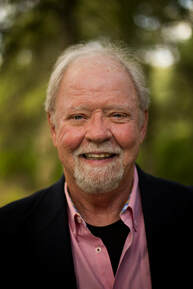
Dennis Slattery, Ph.D.
DENNIS PATRICK SLATTERY, Ph.D. is an author, poet and educator. He is a core faculty member at Pacifica Graduate Institute, where he was involved in the development of the Mythological Studies program. His areas of emphasis include the poetic imagination, writing and reading as mythic activities, the relation of psyche, spirit and matter, and the place of contemplation within the academic setting. He is the author of more than 25 books, and perhaps is best known his book, The Wounded Body, which was included in The Best Books for Academic Libraries in 2002.

Caterina Vezzoli, C.G.
Caterina is a Jungian analyst in private practice in Milan. She trained as a psychologist at the University of Padua and at the Jung Institute in Zurich, and is a training analyst there and at the Centro Italiano di Psicologia Analitica (CIPA). She has served as Director of Studies, Honorary Secretary and Treasurer of CIPA’s Milan Institute, as well as its National Treasurer and Vice President. She has done extensive research on children’s dreams, child analysis, the psychology and physiology of sleeping and dreaming, the associations experiment, and has written extensively on these topics.
CONFERENCE SCHEDULE
Downloadable Schedule
| assisi_italy_2019_sched_iii.pdf | |
| File Size: | 403 kb |
| File Type: | |
Accommodations and Meals
How to Register
For your convenience, register by telephone or mail
• By telephone: Call us at 860-415-5004, and we will be happy to help you register, provide more information, and/or help with your travel plans.
• By mail: Complete the attached registration form, include credit card information or check for $500 deposit payable to the Assisi Institute and mail to:
Assisi Institute
4 Broadway Ext. Ave
Unit 3A
Mystic, CT 06355
Participation
Open to the general public as well as mental health professionals. No prerequisites are required. Arrangements can be made for family or friends interested in accompanying participants (but not attending) the lecture presentations.
Payment and Cancellation Policy
Payment of the conference fee is due in full by May 15th, 2019. A full refund less a $250 processing fee will be given to anyone canceling before May 15, 2019. Participants canceling between May 15 and June 15, 2019 will be refunded all monies paid less a $1,000 processing fee. A 50% refund of the monies paid will be given to those canceling between June 16 and July 1, 2019. No refunds are given after July 1, 2019.
Insurance
We strongly recommend travel insurance for losses necessitated by having to cancel your participation.
For your convenience, register by telephone or mail
• By telephone: Call us at 860-415-5004, and we will be happy to help you register, provide more information, and/or help with your travel plans.
• By mail: Complete the attached registration form, include credit card information or check for $500 deposit payable to the Assisi Institute and mail to:
Assisi Institute
4 Broadway Ext. Ave
Unit 3A
Mystic, CT 06355
Participation
Open to the general public as well as mental health professionals. No prerequisites are required. Arrangements can be made for family or friends interested in accompanying participants (but not attending) the lecture presentations.
Payment and Cancellation Policy
Payment of the conference fee is due in full by May 15th, 2019. A full refund less a $250 processing fee will be given to anyone canceling before May 15, 2019. Participants canceling between May 15 and June 15, 2019 will be refunded all monies paid less a $1,000 processing fee. A 50% refund of the monies paid will be given to those canceling between June 16 and July 1, 2019. No refunds are given after July 1, 2019.
Insurance
We strongly recommend travel insurance for losses necessitated by having to cancel your participation.
Download Registration Form Below
| assisi_ital_reg._2019_ii.pdf | |
| File Size: | 414 kb |
| File Type: | |
Your browser does not support viewing this document. Click here to download the document.
Questions?
E-mail us at: [email protected]
Call us at: (860) 415-5004
Continuing Education Credit (18.0) is pending through Commonwealth Educational Seminars for the following professions:
Psychologists
Social Workers
Marriage & Family Therapists
Licensed Professional Counselors/Licensed Mental Health Counselors
It is the participant's responsibility to check with their individual state boards to verify CE requirements for their state.
-----------------------------------------------------------------------------------------------------------------------------------------------------------------
Grievance Policy
Commonwealth Educational Seminars (CES) seeks to ensure equitable treatment of every person and to make every attempt to resolve grievances in a fair manner. Please submit a written grievance to: Assisi Institute, [email protected], 860-415-5004. Grievances would receive, to the best of our ability, corrective action in order to prevent further problems.
------------------------------------------------------------------------------------------------------------------------------------------------------------------------------
Accommodations for the Differently Abled
The Tre Esse conference location training facilities are handicap accessible. Individuals needing special accommodations, please contact: Assisi Institute, 860-415-5004, [email protected]
Psychologists
Social Workers
Marriage & Family Therapists
Licensed Professional Counselors/Licensed Mental Health Counselors
It is the participant's responsibility to check with their individual state boards to verify CE requirements for their state.
-----------------------------------------------------------------------------------------------------------------------------------------------------------------
Grievance Policy
Commonwealth Educational Seminars (CES) seeks to ensure equitable treatment of every person and to make every attempt to resolve grievances in a fair manner. Please submit a written grievance to: Assisi Institute, [email protected], 860-415-5004. Grievances would receive, to the best of our ability, corrective action in order to prevent further problems.
------------------------------------------------------------------------------------------------------------------------------------------------------------------------------
Accommodations for the Differently Abled
The Tre Esse conference location training facilities are handicap accessible. Individuals needing special accommodations, please contact: Assisi Institute, 860-415-5004, [email protected]
